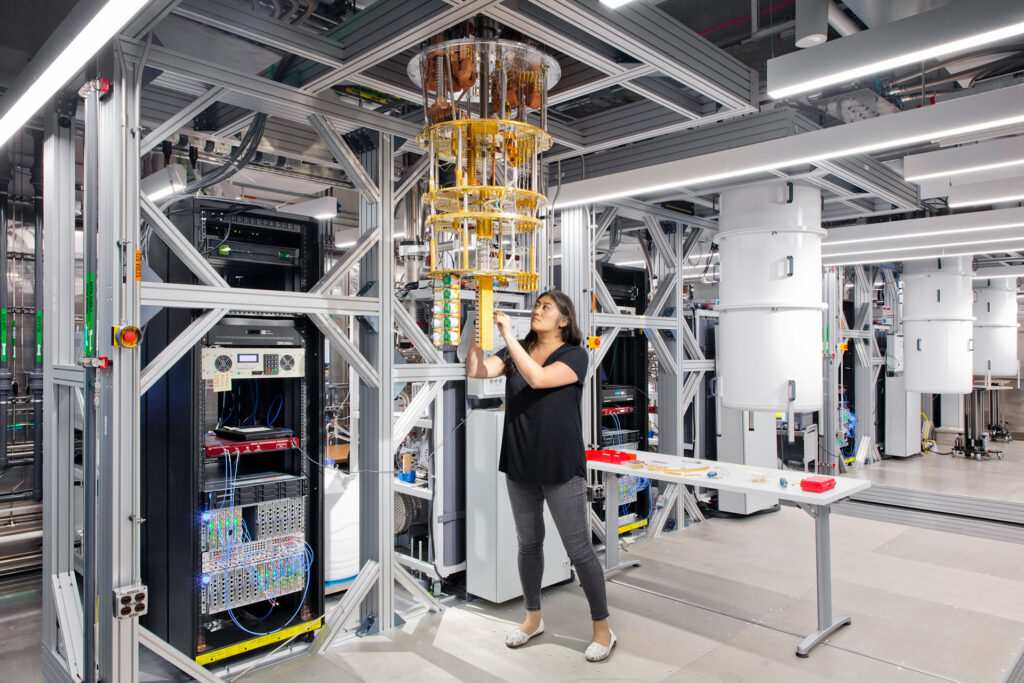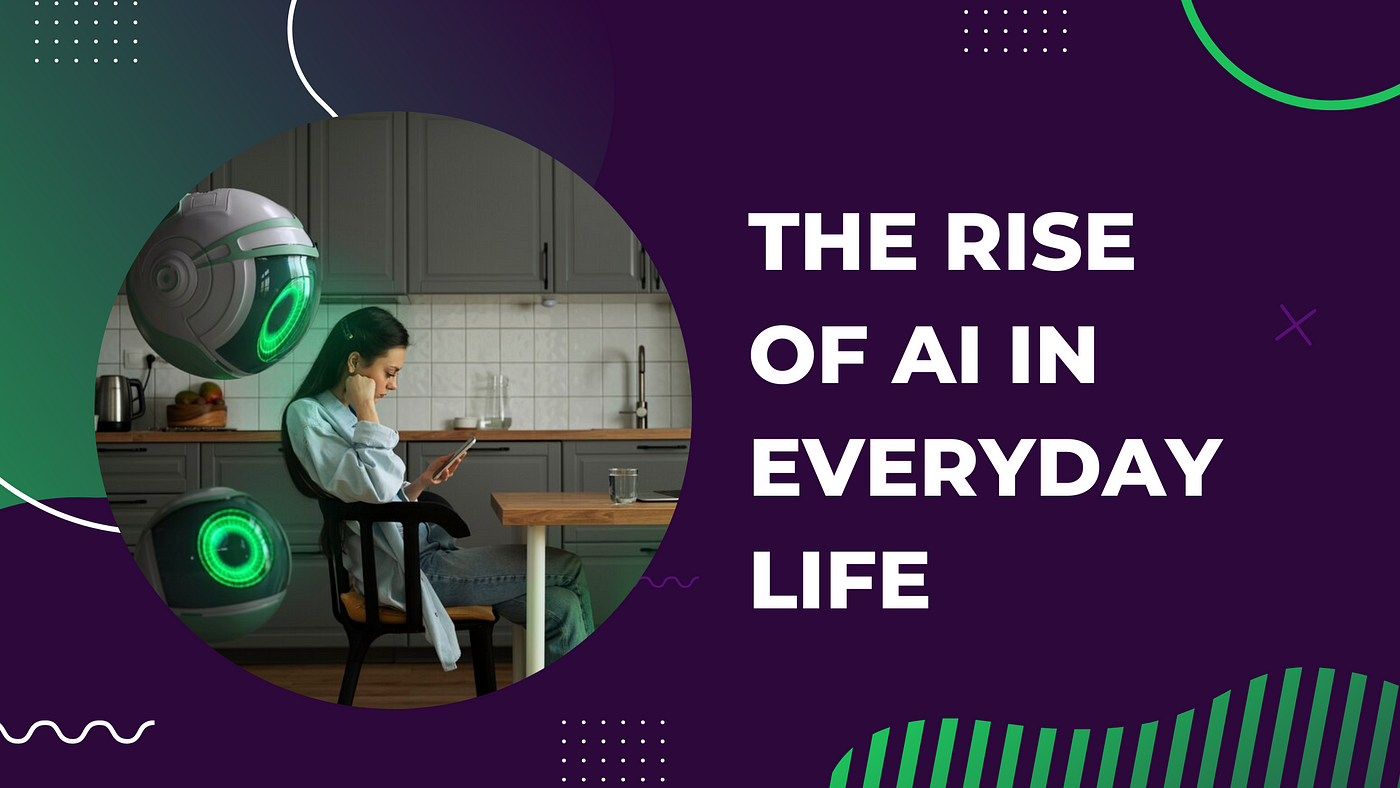The Future of Quantum Computing
One of the most ground-breaking technical developments that has the potential to drastically alter our environment in ways we still don’t fully comprehend is quantum computing. Quantum computers use quantum bits, or qubits, which can exist in several states concurrently due to the concepts of quantum mechanics like superposition and entanglement. In contrast to classical computers, which rely on bits, which can only be either 0 or 1. Because of this, complicated computations can be completed by quantum computers tenfold more quickly than by traditional computers. This creates a wealth of opportunities for breakthroughs in a variety of sectors, including materials science, artificial intelligence (AI), encryption, and medicine.
This essay explores the possible future of quantum computing, what advances to anticipate, and how it may affect many businesses and society at large as we stand on the cusp of a quantum revolution.

1. The Current State of Quantum Computing
Researchers, businesses, and governments are vying for “quantum supremacy,” the state in which quantum computers can do tasks more efficiently than classical computers. Quantum computing is still in its infancy. Leading computer firms including Microsoft, Google, and IBM have been at the forefront of the development of quantum processors. In 2019, Google made news when it revealed that it had attained quantum supremacy, taking only a few minutes to solve a task that would have taken thousands of years for traditional supercomputers.
Building a fully functional and fault-tolerant quantum computer is still difficult despite recent advancements. Due to quantum noise and instability, current quantum computers, often referred to as Noisy Intermediate-Scale Quantum (NISQ) systems, are still quite error-prone. The widespread use of quantum computing is still a matter of “when,” not “if,” as the advancements made thus far are setting the stage for future discoveries.
2. Breakthroughs to Expect in Quantum Computing
The future of quantum computing is anticipated to be shaped by a number of significant developments that will progressively translate it from experimental research to useful applications:

2.1. Stability and Correction of Errors
Error correction is one of the most important problems in quantum computing. Because of their fragility and susceptibility to outside noise, calculations involving quantum states are unreliable. A group of methods known as quantum error correction codes (QECC) are intended to increase qubit stability and error protection. The development of more efficient error correction algorithms will be essential for fault tolerance and scaling of quantum computers.
Error correction improvements will strengthen quantum computers and enable them to sustain stable quantum states over extended periods of time. This will bring quantum computing closer to being commercially viable by enabling researchers to carry out increasingly complicated computations with greater accuracy.
2.2. Advances in Quantum Hardware
Nowadays, a range of technologies, including superconducting qubits, trapped ions, and photonic qubits, are used to construct quantum processors. Every one of these has advantages and disadvantages. For instance, superconducting qubits are currently the most widely utilized method and are employed by Google and IBM, among other businesses. Businesses such as IonQ use trapped ion systems, which are more stable but more difficult to scale.
Future developments in quantum hardware should bring about breakthroughs in qubit quality and scalability. The amount of qubits that can be reliably handled will rise as researchers improve these technologies, resulting in more potent quantum computers that can tackle bigger and more complicated tasks.
2.3. Algorithms in Quantum
The mathematical formulas that quantum computers employ to solve issues are known as quantum algorithms. Quantum computing has the ability to breach current cryptographic systems, as shown by algorithms like Shor’s algorithm, which can factor enormous numbers exponentially faster than conventional algorithms.
More quantum algorithms designed for certain industries, like machine learning, optimization, and drug discovery, are anticipated in the future. Quantum computers will be able to solve issues that were previously thought to be unsolvable or impractical for classical computers when these algorithms are improved.
3. The Impact of Quantum Computing on Key Industries
It is anticipated that the revolutionary potential of quantum computing would have a profound effect on numerous industries. Let’s examine how quantum computing can alter some important sectors:
3.1. Cybersecurity and Cryptography
The topic of cryptography is among the areas where quantum computing will have the biggest effects. The complexity of factoring huge numbers—a job that would take traditional computers an unreasonably long time—is the foundation of modern encryption techniques like RSA. Nevertheless, many of the security measures in place today would become outdated if quantum computers executing Shor’s algorithm were able to crack current encryption techniques in a very short amount of time.
This presents a chance as well as a risk. On the one hand, enemies with quantum capabilities may be able to launch cyberattacks against sensitive data. However, a new area of study will arise with the development of quantum-resistant cryptography, or encryption methods that are impervious to quantum attacks. In order to ensure that cybersecurity advances in tandem with quantum computing, governments and organizations throughout the world are already developing quantum-safe encryption techniques.
3.2. Medical Research and Drug Development
The process of simulating chemical structures and interactions can be accelerated significantly by quantum computing, which holds the potential to completely transform the drug discovery industry. Even for supercomputers, it is currently computationally costly and time-consuming to simulate the behavior of complex molecules. On the other hand, the more effective modeling of molecular interactions by quantum computers can result in shorter drug development cycles and the identification of novel disease treatments.
Quantum computing can potentially improve data analysis, tailored medication, and logistics in the healthcare industry. Large-scale patient data sets and genetic profiles could be analyzed by it to generate individualized treatment regimens, revolutionizing precision medicine and changing our understanding of health and illness care.
3.3. Machine Learning and Artificial Intelligence
Machine learning and artificial intelligence (AI) could be greatly enhanced by quantum computing. Even though they are strong, classical computers have difficulty with some complicated optimizations and probabilistic problems. However, quantum computers are perfect for improving AI algorithms since they are more effective at solving optimization problems.
Quantum-enhanced machine learning, for instance, has the potential to increase the precision and speed of artificial intelligence models utilized in financial forecasting, picture identification, and natural language processing. Artificial intelligence (AI) systems may grow increasingly more complex as quantum computing develops, solving challenges that are now beyond the capabilities of current classical AI models.
3.4. Accounting and Efficiency
Optimization algorithms play a major role in the banking industry for activities including fraud detection, risk assessment, and portfolio management. Better decision-making and more accurate financial forecasts are made possible by quantum computing’s far faster performance of these optimizations than traditional computers.
Quantum algorithms may also improve financial modeling by sifting through enormous volumes of historical data to find trends and forecast market behavior. This has the potential to transform risk management, trading tactics, and the effectiveness of financial markets as a whole.
3.5. Energy and Materials Science
It is very difficult for classical computers to simulate and model the properties of materials at the atomic and molecular levels, but quantum computers can. This skill will transform materials science by allowing scientists to create new materials with targeted characteristics, such superconductors or robust, lightweight materials for industrial use.
Quantum computing has the potential to enhance battery technology, optimize power networks, and hasten the creation of clean energy sources. It might, for instance, aid in the development of more effective solar cells, energy storage devices, and carbon capture techniques, all of which would contribute to a more sustainable future.
4. The Challenges Ahead
Though quantum computing has a bright future, there are still a number of obstacles to overcome:
4.1. Capability to Scale
The construction of large-scale, fault-tolerant quantum computers is one of the biggest technological obstacles. Maintaining coherence and minimizing mistakes gets exponentially harder as the number of qubits rises. Although scientists are working to overcome these obstacles, it might be years before we have large-scale quantum systems that can resolve useful, real-world issues.
4.2. Commercialization and Standardization
The field of quantum computing remains extremely fragmented, with numerous businesses and academic institutions exploring distinct methodologies and technologies. For quantum technology to be widely used, standards for software, hardware, and algorithms must be established. The commercialization of quantum computing will also necessitate large expenditures on talent, infrastructure, and education.
4.3. Consequences for Ethics and Society
Like any novel technology, quantum computing gives rise to ethical questions. The risk to data privacy posed by quantum computers’ ability to crack existing encryption techniques is substantial. Furthermore, with a small number of nations or companies holding the lion’s share of quantum resources, the unequal distribution of quantum computing capabilities may make already existing disparities worse on a global scale.
International collaboration as well as frameworks for the responsible development and application of quantum technologies will be necessary to address these ethical issues.
Conclusion
The next big thing in technology is quantum computing, which has the ability to address some of the trickiest issues facing humanity right now. Quantum computing will have a significant and wide-ranging impact on a variety of fields, including cybersecurity, materials research, healthcare, finance, and artificial intelligence.
We are on the verge of a quantum revolution, despite the fact that scaling and commercializing quantum computers still present substantial obstacles. With continued progress, quantum computing has a bright future ahead of it. It will revolutionize industries, spur creativity, and create previously unimaginable opportunities.









Leave a Reply